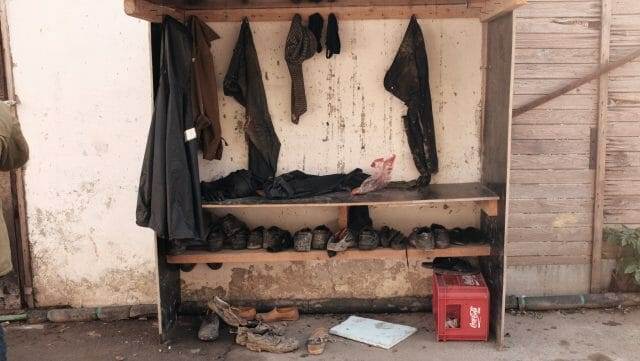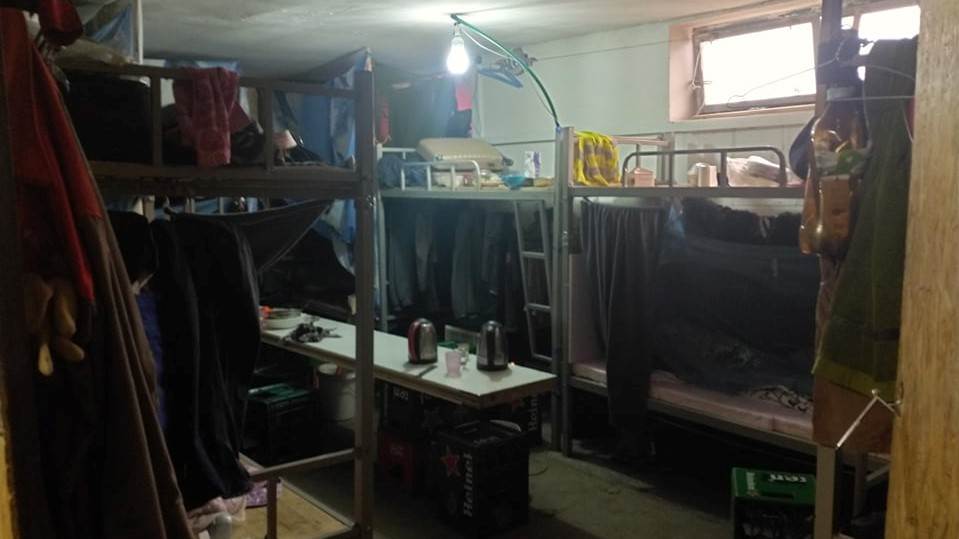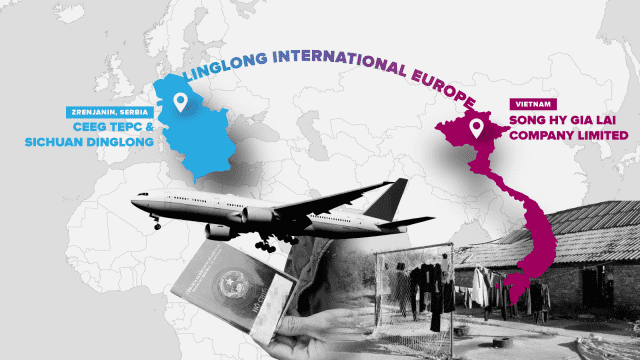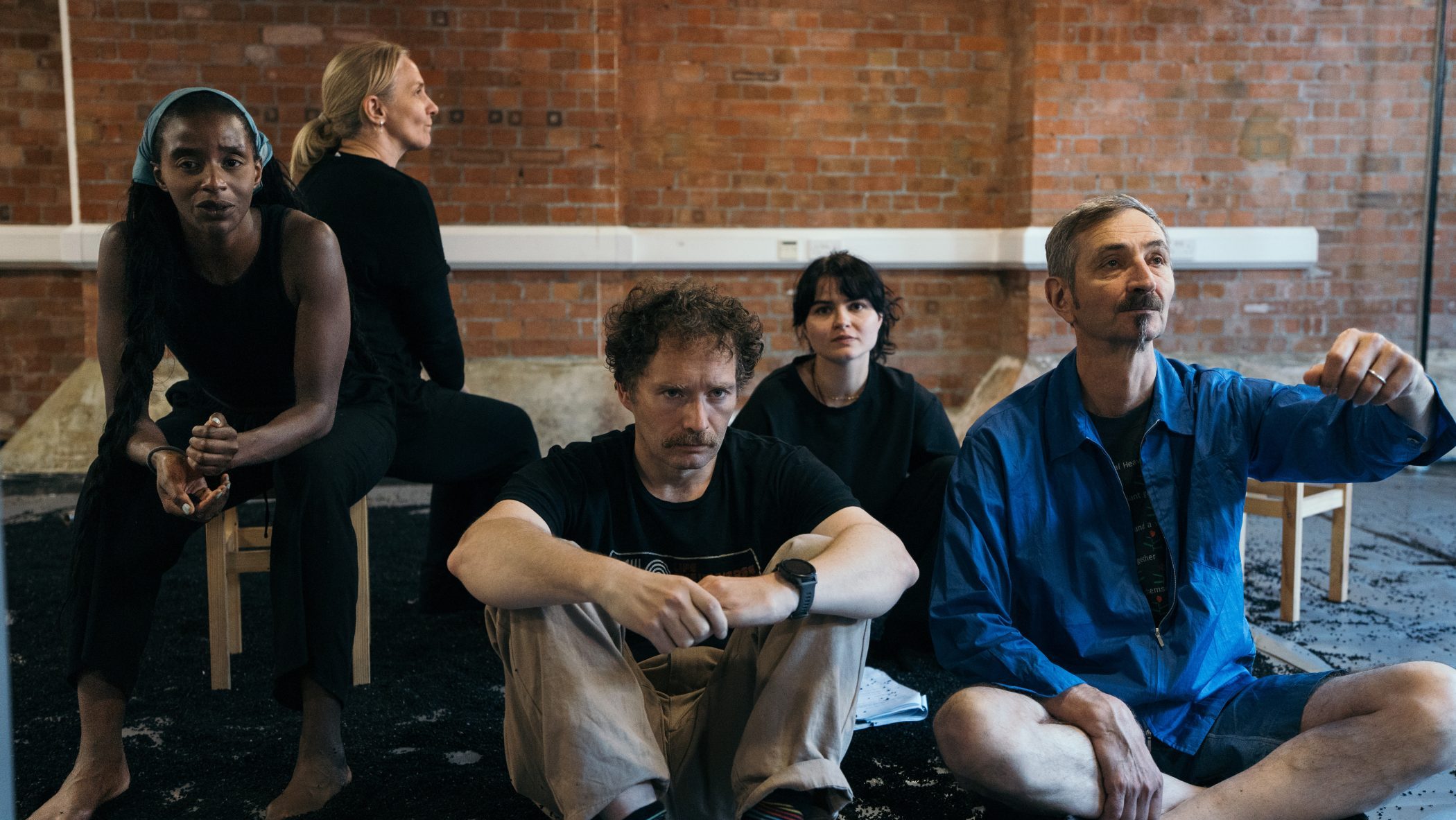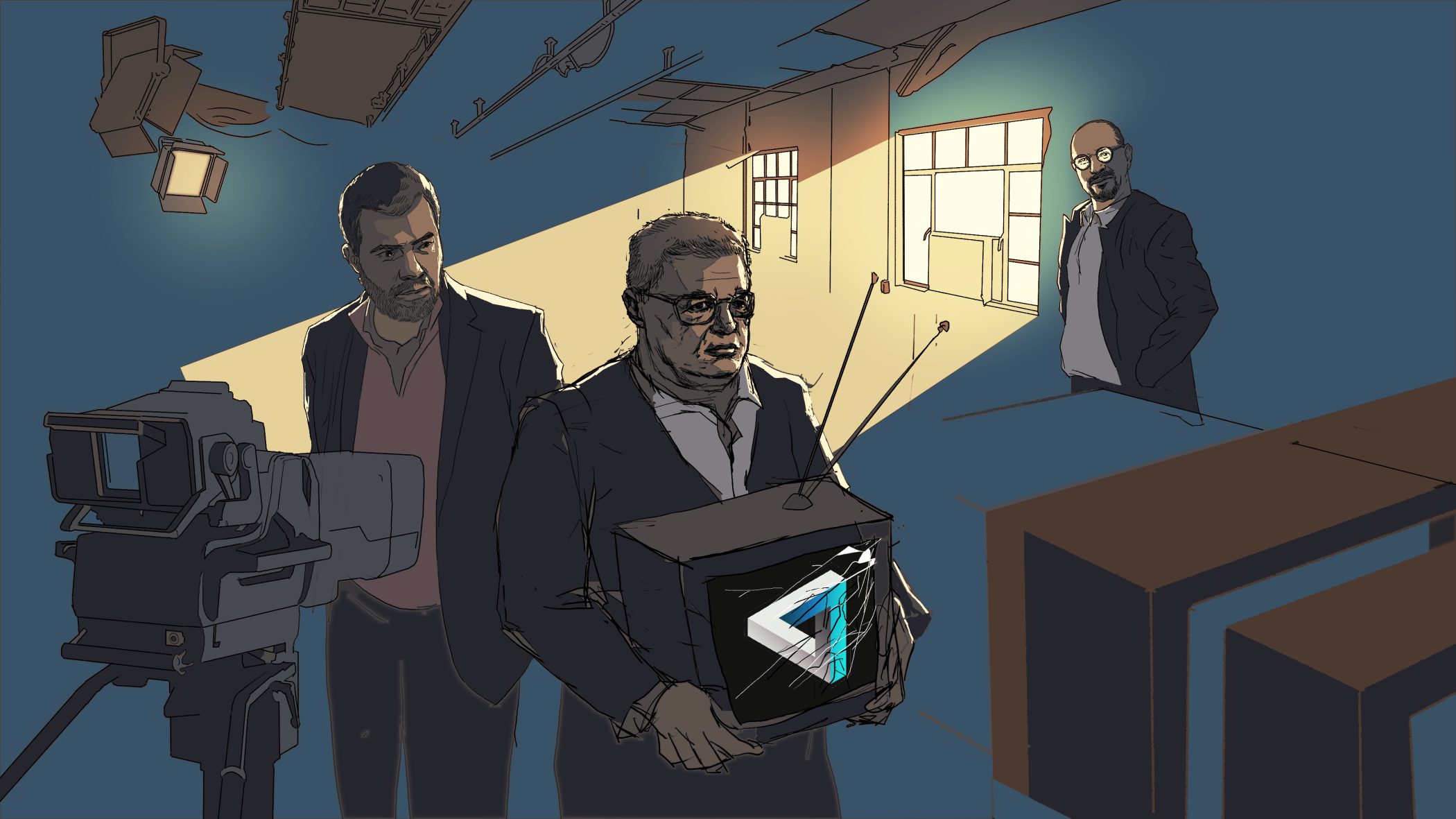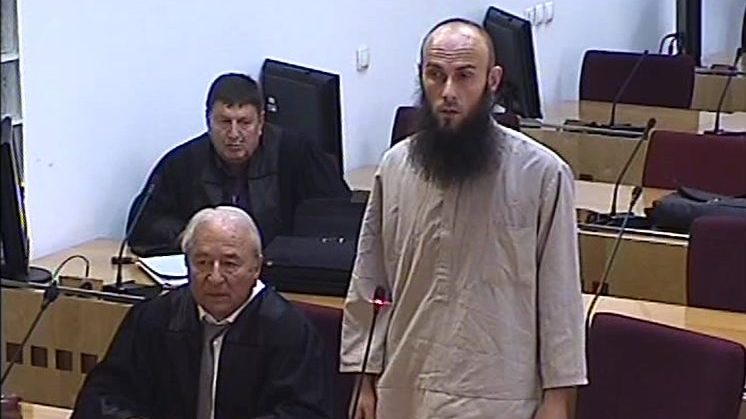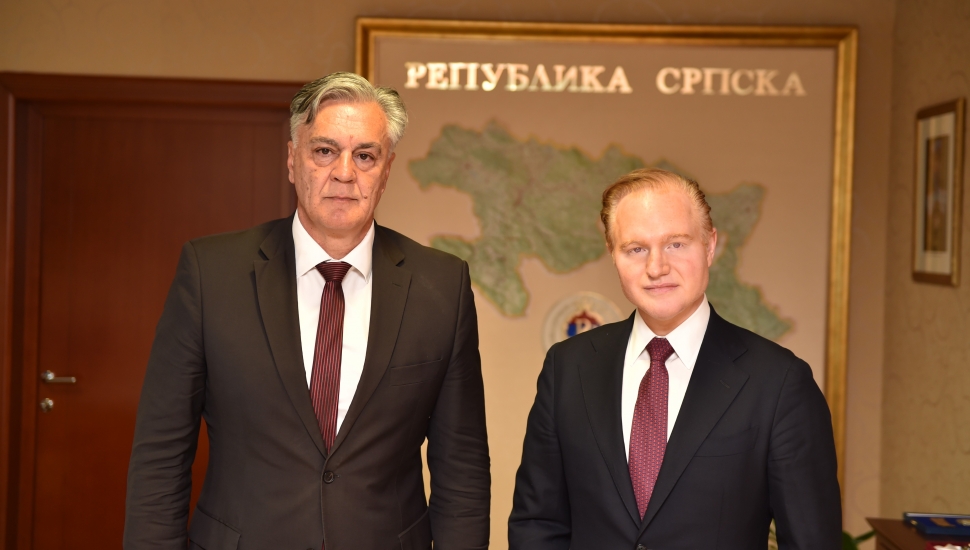This post is also available in: Bosnian
Experts say when it comes to general state of labour rights in Serbia, it is another case of “same old, same old”.
Few institutions replied to NGO inquiries about the case, and none of them has conducted a proper investigation into claims of systematic labour exploitation, ranging from illegal contracts to misinformation prior to arrival, unclear financial penalties, dubious working permits and dismal living conditions.
Allegations of human trafficking due to confiscated passports, limited freedom of movement, “entrapping” contracts and the systematic deception of workers have not been investigated by the Serbian state’s Centre for Protection of Victims of Human Trafficking.
“Employees of that institution, established to identify victims, whose staff receive salaries from the taxpayers’ budget, have not even conducted interviews with those workers in three months,” Tina Piskulidis from ASTRA, one of the organisations that alerted the public, complained.
“An expert who went to the field on the first day and saw the catastrophic situation was forbidden to communicate with us about this case,” she added.
The institutions of a country formally on the EU accession path were not moved by a European Parliament Resolution on the matter adopted in mid-December, or by recent UN human rights experts’ criticism, published on January 22.
The political interests of the Chinese project have instead prevailed. The Serbian government has heavily promoted and financially supported construction of a factory by the Shandong LingLong tire company, which allegedly plans to invest 800 million euros in the plant near Zrenjanin.
The house in Zrenjanin which Vietnamese workers are living. November 2021. Photo: A11/ Sara Nikolic
As the alliance between Belgrade and Beijing becomes ever solider, Serbia has become the main Balkan hub for Chinese investments.
The rule of law is being bent, however, claims Danilo Curcic from A11, an NGO dealing with workers’ rights.
He says that if Serbia wants to present itself as a credible country in international relations, Serbia needs to show that it is doing something about the Vietnamese Linglong workers’ ill treatment.
“It has become clear that, in the case of Vietnamese workers, trafficking of people for the purpose of labour exploitation is viewed favorably by the competent state authorities,” he said.
For various reasons, international pressure on Serbia in the matter is not great, “but in this case, it is something we must rely on as much as we can”, Curcic told BIRN.
Plenty of evidence, lack of feedback
A system of exploitation and human trafficking started in Vietnam and ended up in Serbia, a BIRN investigation has shown, based on contracts the workers signed with subcontractors for LingLong an also on so-called “commitment forms” they signed with intermediary recruitment agencies before travelling to Serbia.
Bans on unions, “regular” working hours that exceed Serbian labour law maximums, penalties for sick leave and false warnings about punishments for committing crimes in Serbia are just some of the problematic matters imposed on the Vietnamese workers who crossed thousands of miles in search of decent pay in Europe.
UN human rights experts on January 21 raised serious concerns about the alleged forced labour of Vietnamese workers in Serbia, who were, they said, potential human trafficking victims.
The UN experts urged the three governments of Serbia, Vietnam and China to ensure that businesses based in their territories or operating under their jurisdiction respect human rights.
“We are deeply concerned that these migrant workers may have been trafficked for purposes of forced labour and have been living and working in appalling conditions in Serbia, at serious risk to their lives and health,” the experts appointed by the UN Human Rights Council said.
“This includes not only the businesses who rely on migrant labour but also labour recruitment agencies. The regulation and monitoring of labour recruitment agencies is also critical for the effective prevention of trafficking for the purposes of forced labour,” their official press release said.
The house in Zrenjanin which Vietnamese workers are living. November 2021. Photo: Private archive/BIRN
So far, Serbian authorities have not reacted. ASTRA has written to at least ten institutions, including the government, but received no answers, or ones with substance, by time of publication.
“It was clear from the start that, due to the political connotations, and if the situation lasted too long, the capacity of NGOs and independent activists involved in this case would be weakened.
“We assume they were aware of that, and this slowed down their possible reactions, so that the story ends up buried by a public overwhelmed with new problems,” Piskulidis told BIRN.
BIRN’s own queries on the matter received no answers from Serbian institutions either.
The question of the work permits for the Vietnamese workers has also remained unclear.
While the Ministry of Labour said 402 Vietnamese were working for different companies on the LingLong site, Serbia’s National Employment Service, NZS, told one researcher in a written response that only 176 of the Vietnamese have work permits.
BIRN submitted its own FOI request on the exact number of Vietnamese in Serbia, and the basis for their hire, but received no answer by the time of publication.
Problems with foreign workers’ exploitation are endemic in Serbia. Experts also warn that planned changes to the Law on Simplified Hiring in Seasonal Work this year will make matters worse, easing the import of seasonal foreign construction workers and making working and human rights violations in the sector less easy to complain about.
The American Bar Association, Center for Human Rights, published a report on the Law on January 25, criticizing the planned legislation, referring directly to “recent incidents and allegations of forced and trafficked labor of foreign workers in Serbia”.
“Labor rights abuses of migrant and foreign workers in Serbia have been on the rise and the Draft Law is likely to exacerbate the situation”, the US report warned.
Some went home, some stayed, some vanished
For the Vietnamese workers, the situation has now improved because of the media pressure and the international attention, some of them told BIRN.
Their accommodation was better and owed salaries have been paid, although there are still issues such as non-hygienic bathrooms, lack of warm water or food storage piled with rats, which can be seen in a video some workers sent to BIRN.
Stotine Vijetnamaca došlo je u Srbiju kako bi zaradili pristojnu platu za svoje porodice. Ilustracija: Branko Karapandža/BIRN
However, most now want to stay in Serbia. Quoc, a worker willing to talk under the anonymity, told BIRN that many of them do not have much choice but to stay, especially after conditions improved.
“We are still working and are now receiving wages since your team fought to help us. I want to stay in Serbia because I find Serbian people very nice when I meet them, and on this construction site there are a lot of Serbian people,” Quoc told BIRN.
According to data by the police in Zrenjanin, only 20 workers flew back to Vietnam, but the number is probably larger, since some of them decided to leave by themselves, as the company did not want to pay for their tickets home.
But the fact that the most dissatisfied workers have left the country also means that Serbian institutions have now lost their chance to examine their views.
BIRN talked with one who left Serbia in early January. To do so, he had to take a bank loan of around 1,900 euros.
“I am fine now, happy with my family. But now have to find a job to pay off the debt,” he told BIRN.
Some workers at the LingLong construction site have hired smugglers to move them further to the heart of Europe, a topic that the Observer newspaper reported on in December last year.
In one Facebook group that BIRN entered, it can be seen that the Vietnamese are being offered help to move from Serbia or Romania to Poland, Germany, France and the UK, to gain education or jobs.
In Poland, they are offered salaries of 900-1,100 euros for jobs in meat processing, cars assembling, planting mushrooms or welding. In Germany, they can work in restaurants, hotels, nursing or in the automotive industry for bigger salaries, of 2,800-4,000 euros.
Quonc said he was aware this was happening, and some people working at LingLong wanted to move as soon as they saw the terrible conditions in Serbia.
“When I first came here to work, many people wanted to cross the border to flee because of the poor living conditions and unpaid work,” he said.
“Before the media and activists started taking care of our problems, many of them fled. Now they are not going so much,” he concluded.
